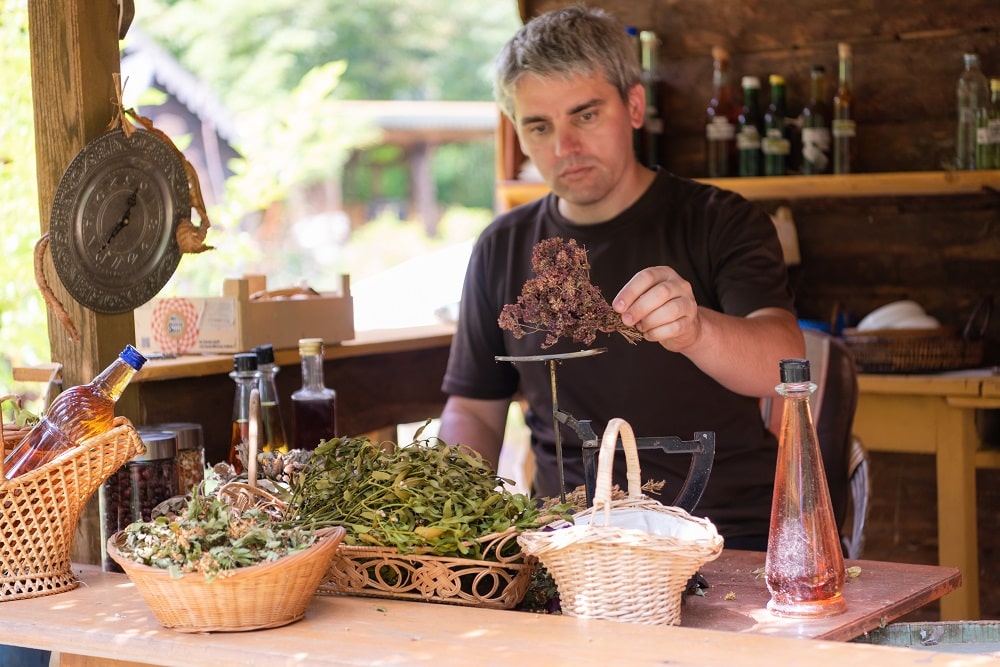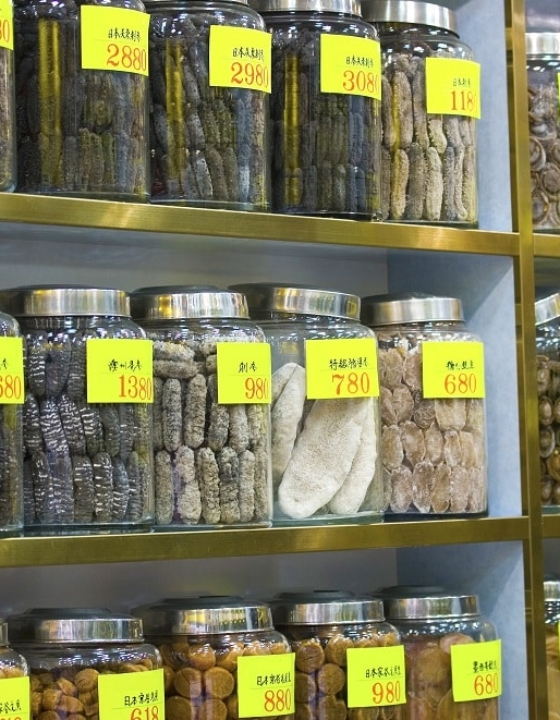The use of medicinal plants for treating symptoms and ailments has been around since prehistoric times. Using plants for their medicinal properties, herbal medicine is a branch of medicine that is still being heavily practiced today, especially in Asian countries. While conventional medicine unanimously calls their practitioners physicians or doctors, practitioners of herbal medicine have two terms often mistakenly used interchangeably: herbalist and herbologist.
Herbalists and herbologists are people in the same field – the use of herbs and plants for medicinal purposes. However, the distinction arises as herbologists primarily study medicinal plants while herbalists practice the use of medicinal plants for promoting healing in other people. There are other differences between the two such as training and career opportunities.
Herbal Medicine
Herbal medicine has been observed to be practiced in numerous cultures and civilizations. Clay tablets dating back from Sumerians in ancient Mesopotamia, list hundreds of medicinal plants and their uses.
The Papyrus Ebers, an ancient Egyptian medical document also describes over 850 different medicinal plants and how they can be used.
Hippocrates, suggested to be the father of western medicine, and his disciples are credited to writing the Hippocratic Corpus – a collection of medicinal texts that includes medicinal herbs and formulations as well.
Herbal medicine has also been integral in prominent schools of medicine such as traditional Chinese medicine and the Ayurveda. These schools of medicine have texts that list hundreds of medicinal plants, formulations, and remedies for various illnesses.
Medicinal herbs used in traditional Chinese medicine are listed in the Shennong Bencaojing (“The Classic of Herbal Medicine”), while Ayurvedic texts include Caraka Samhita, Sushruta Samhita, Ashtang Hrdayam, Ashtang Samgraha, Sarangadhara Samhita, Madhava Nidanan, Cakradatta, Kashyap Samhita, and many more. More modern texts like Dr. Nicole Apelian’s book also exist to help understand herbs and their applications.
Herbal medicine is still heavily practiced around the world, especially in Asian countries. Inside a local marketplace in Asia, it is not uncommon to see herbal medicine being sold. In Indonesia, especially in Java, it is common to see Javanese women carrying bamboo baskets filled with bottles of jamu, traditional Indonesian medicine comprised of roots, bark, flowers, seeds, leaves, and fruits.
There are numerous reasons why people would opt for herbal medicine despite the availability of conventional medicine.
A 2018 paper published in BMC Complementary Medicine and Therapies investigated why people use herbal medicine. The study found that people who opt for herbal medicine are those who are dissatisfied with conventional treatment, had good experiences with herbal medicine, or simply following family traditions.
Another study investigated the purposes of people who buy herbal medicine. A 2016 paper published in the Kastamonu University Journal of Forestry Faculty surveyed local herb firms and customers in Turkey. The customers were asked for their reasons for buying herbs. While the majority of customers bought herbs for food (48.5%), the rest were for medicinal purposes: respiratory system disorders (17.2%), digestive system disorders (11.1%), cardiovascular disorders (5.1%), dermatological disorders (5.1%), nervous system disorders (4%), and other health problems (9%).
One difference between the use of traditional herbal medicine compared to conventional medicine is that traditional herbal medicine is often a holistic approach to health. For example, a patient with osteoarthritis might be prescribed an anti-inflammatory drug by their doctor. However, a herbal practitioner might recommend a list of herbal remedies such as turmeric, devil’s claw, white willow, and licorice for inflammation. They might also add ginseng for weakness and exhaustion, and oats to aid sleep and general well-being.
While doctors and physicians would be terms people would use to refer to individuals who practice herbal medicine, those terms are currently reserved for licensed individuals practicing conventional medicine. Two terms are used for people in the field of herbal medicine: herbalists and herbologists.
Herbalist vs Herbologist

Many texts and resources have mistakenly used herbalist and herbologist interchangeably. While herbalists and herbologists are both practitioners of herbal medicine in a way, there is a distinct difference between the two: herbologists are people who primarily study herbal medicine while herbalists are people who use medicinal plants to help the sick.
The words herbalist and herbologist are also reflective of herbalism and herbology. While very similar, the distinction between herbalism and herbology is parallel to the distinction between herbalists and herbologists. While herbology is the study of medicinal plants, herbalism is both the study and the use of medicinal plants.
In this sense, herbalists are herbologists as well. However, not all herbologists are herbalists.
Career
Herbologists focus on the study of medicinal plants. Some texts put herbologists as herbal medicine enthusiasts or people who enjoy learning about herbal medicine. However, herbologists can also study medicinal plants professionally. Professional herbologists are responsible for growing and taking care of medicinal plants, collecting medicinal plants, preparing herbal remedies, keeping up to date on herbal research, and selling herbal products.
Professional herbalists are capable of performing all the responsibilities and duties of a herbologist. Moreover, a professional herbalist is also responsible for meeting with clients, assessing symptoms, performing physical examinations, recommending herbal remedies, planning and explaining treatment requirements, liaising with and making referrals to specialists or other health care practitioners, providing advice about diet, exercise, and lifestyle, and keeping accurate and confidential patient records.
As both herbalist and herbologist can run their own businesses and practices, they also require managerial duties such as bookkeeping, managing herbal stocks, and marketing and growing the business.
Training
Due to the disparity of duties and responsibilities between a herbalist and a herbologist, the training between the two also differs.
As herbologists focus on medicinal plants, these individuals require extensive knowledge on botany, ethnobotany, plant taxonomy, herbal medicine preparation, and such. Comparatively, herbalists require the same extent of knowledge as herbologists do when it comes to plants. However, herbalists are further required to be knowledgeable in pharmacy, nutrition, and human sciences (e.g., anatomy, physiology, biochemistry, etc.).
Furthermore, herbalists can benefit greatly from learning from another herbalist, especially in an apprentice-mentor relationship. As an apprentice, a budding herbalist would be able to learn firsthand from an experienced herbalist all the ways their practice is performed. Meanwhile, herbologists can achieve everything they know from learning materials and texts alone. Without having to learn the interpersonal and social skills that a herbalist requires, an individual can become a herbologist just by reading books.
Certification
Another difference between a herbalist and a herbologist is that since herbalists have direct contact with clients, they are able to register to herbalist associations. Being a registered herbalist demonstrates their core level of knowledge and experience in herbal practice that establishes a standard of competency for themselves and others.
Typical requirements for becoming a registered member for these associations include extensive knowledge of human nutrition, herbal nutrition, ethnobotany, edible wild plants, basic herbal and medical terminology, herbal medicine preparation, drug and herbal interaction, cross cultural herbology, and so on. Applicants must also have hundreds of hours with direct client contact, the required number of individual clients seen within two years, and a comprehensive working materia medica.
References
- https://bmccomplementmedtherapies.biomedcentral.com/articles/10.1186/s12906-018-2160-6
- https://www.researchgate.net/profile/Sefa_Akbulut/publication/306006390_Herbalist-Customer_Profile_in_Medicinal_and_Aromatic_Herbs_Trade_A_Case_Study_of_Kahramanmaras_Turkey/links/585a534108aeabd9a58ca366/Herbalist-Customer-Profile-in-Medicinal-and-Aromatic-Herbs-Trade-A-Case-Study-of-Kahramanmaras-Turkey.pdf






















What do you think?